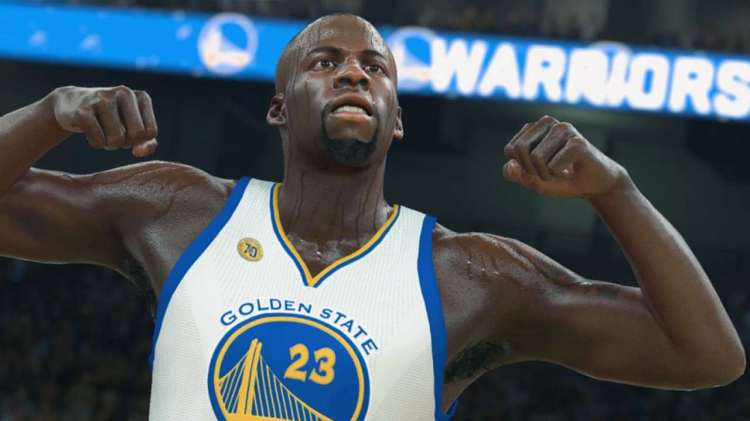A major professional sports league will operate an esports league, a first for the esports industry, with the National Basketball Association and Take-Two Interactive Software’s early endeavor for gamers to compete while representing NBA teams. This partnership represents a watershed moment for the burgeoning esports industry with implications for both fans of long-established sports leagues and gamers around the world.
Why now for the NBA
Television viewership drives the majority of revenue for the major sports leagues, and esports attracts a lot of eyeballs. More people watched the 2016 League of Legends Season 3 World Championship broadcast on Twitch than followed the dramatic 2017 Super Bowl via Fox Now (8.5 million and 1.72 million people respectively; Fox Now was free for anyone to stream the Super Bowl without requiring any log-in or authentication to stream). It likely was not lost on NBA commissioner Adam Silver that more people watched the League of Legends championship than the 2016 NBA Finals (32 million and 30.8 million people respectively). For the foreseeable future, esports will continue to generate increasing amounts of revenue and profit. This year, esports is expected to surpass $1 billion in revenues for the first time ever. Revenues from are expected by some experts to reach $1.25 billion annually by 2019.
The NBA is wagering that people who grew up spending more time playing video games than on the basketball court may redefine the concept of “athlete” and “sport.” Major brands and movie studios also have noticed the burgeoning popularity of esports. Will Ferrell will star as an esports player in a major motion picture. Advertising agency behemoth M&C Saatchi Sports and Entertainment launched a new esports practice. When announcing Visa’s multimillion-dollar naming sponsorship of an esports team, the credit card company’s executive director of marketing Gary Twelvetree declared, “Pro gaming has changed the way we see sport in recent years, opening access to people the world over and creating a surge in its popularity. We see huge potential for the industry.”
Why the NBA bet big on esports
The NBA views the 2K esports league as more than an investment but also as a way to expand its own brand. In the U.S., young consumers increasingly are flocking to esports in lieu of more traditional forms of recreation. The prestigious IMG Academy has added an esports training camp (Complexity’s Call of Duty), university athletic departments now are offering esports scholarships, and the Big Ten athletic conference has created an esports competition between member schools. A majority of American football fans are older than 35 (56 percent), while 73 percent of esports followers are much younger than 35. The popularity of esports has spiked among male millennials: 22 percent of this group, which is highly-valued by advertisers, watch esports. This is a higher percentage than professional hockey and equal to the popularity of baseball. Internationally, the NBA long has focused on growing its fan base and revenue from Asia, especially China.
June 5th: The AI Audit in NYC
Join us next week in NYC to engage with top executive leaders, delving into strategies for auditing AI models to ensure fairness, optimal performance, and ethical compliance across diverse organizations. Secure your attendance for this exclusive invite-only event.
Despite being in the early stages of development, esports already has a robust international presence because gaming is very popular in places like South Korea, Japan, China and Europe. Forty-four percent of the esports audience in 2016 is estimated to have been from Asia. The NBA has closely followed these developments and decided the potential audience and financial upside justified a significant financial and public relations investment in esports.
Money is certainly also an important motivator for the NBA. The NBA has the wealthiest ownership group of any of the major U.S. sports leagues, with 20 billionaire owners. Like the NBA and National Football League in the 1970s, esports may represent the next iteration of multi-billion dollar, mainstream sports franchises. Wary of the possibility that esports challenges the NBA, NBA owners are investors who are betting that esports continues to take-off with the billions in profits flowing back to NBA owners.
Implications for esports
With this NBA partnership, esports will have added support necessary to become a mainstream sport. Through this partnership, 2K can lean on professional athletes and the brands of very well-known NBA teams to increase brand awareness and consumer engagement. As NBA teams themselves have invested in eSports, expect cross-promotional marketing at NBA games and star NBA players to appear as themselves in esports competitions. The NBA’s robust international presence also can help eSports expand. The NBA arguably is the most diverse major U.S. sports league, with approximately one hundred international players from over 37 countries. Esports can leverage the name recognition of these international NBA players in their respective countries to bring the eSports to hundreds of millions of new fans.
The NBA partnership also should help esports expand to additional, more conventional distribution channels. Aside from very limited appearances on TBS and ESPN, esports is consumed via online streaming channels. As awareness of and interest in esports continues to grow, partnership opportunities with more traditional media companies (such as network television) will make economic sense. Gamers and esports fans should expect to increasingly be able to watch competitions through cable and broadcast television as a result of the NBA partnership with 2K.
Spurred by the NBA’s advocacy and resources, expect to see the NBA 2K League and esports enter mainstream sports culture in the near future.
Aaron Swerdlow is an attorney at Gerard Fox Law, where he represents sports, corporate, and emerging technology entities.


